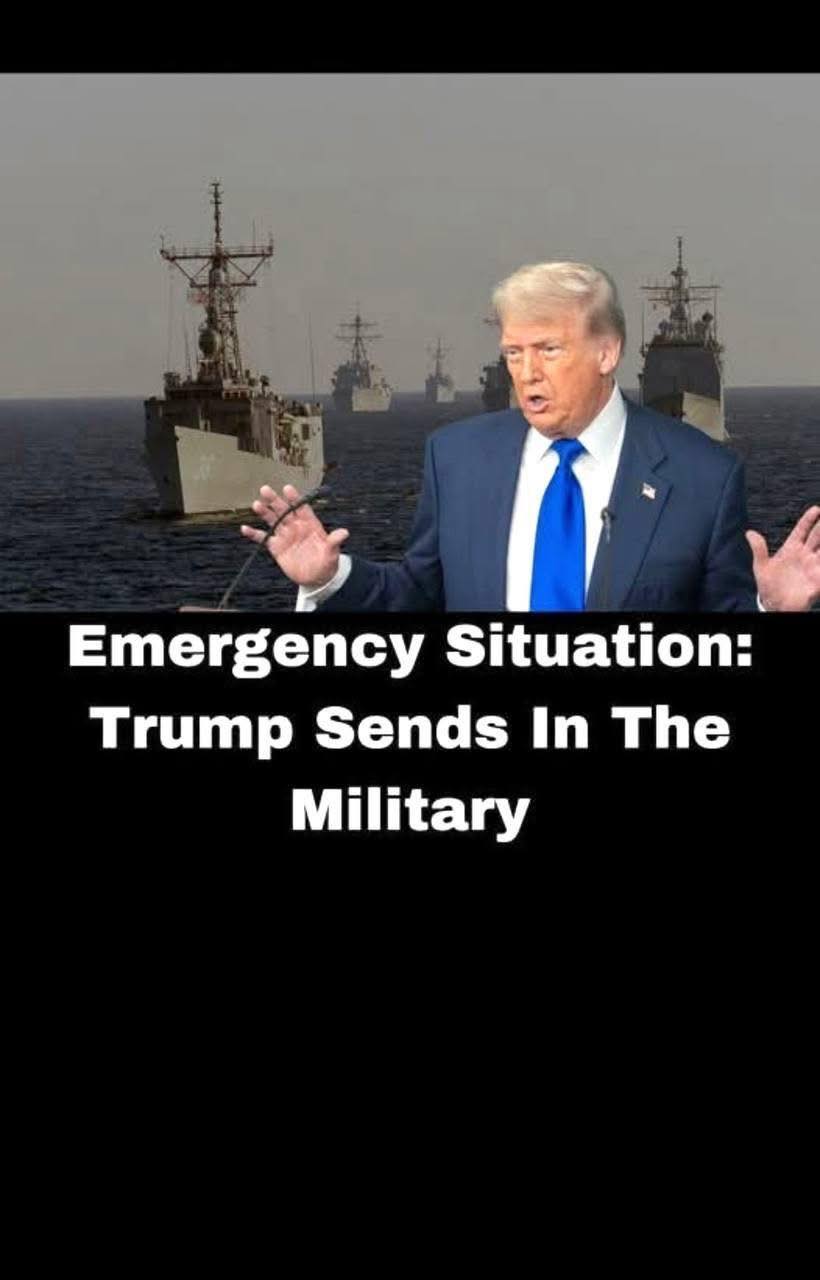Washington, D.C. — In a dramatic escalation of America’s fight against narcotics networks, U.S. forces carried out a lethal strike against alleged members of the Venezuelan-based cartel Tren de Aragua (TDA) while they were transporting drugs across international waters.
The operation, confirmed by senior officials, marked the first time Washington has used direct military force at sea to target traffickers, signaling a shift away from the traditional law-enforcement model of seizures and arrests.
Trump Announces Strike
During a White House press conference, President Donald Trump provided limited details but later issued a pointed statement on Truth Social.
“Earlier this morning, on my Orders, U.S. Military Forces conducted a kinetic strike against positively identified Tren de Aragua Narcoterrorists in the SOUTHCOM area of responsibility,” Trump wrote.
“TDA is a designated Foreign Terrorist Organization, operating under the control of Nicolás Maduro, responsible for mass murder, drug trafficking, sex trafficking, and acts of violence and terror across the United States and Western Hemisphere.”
Trump said the strike destroyed a drug-laden vessel, killed 11 cartel members, and caused no U.S. casualties. His message ended with a blunt warning: “Please let this serve as notice to anybody even thinking about bringing drugs into the United States of America. BEWARE!”
Accompanying the statement was a short video showing a speedboat racing across open waters before erupting in flames.
How the Strike Happened
Officials confirmed that the operation involved either a Special Operations helicopter or an MQ-9 Reaper drone. The boat, which had been under surveillance for weeks, was tracked until the moment of the strike.
Another official said that “additional operations” against cartels are already in planning stages.
Unlike previous missions that emphasized interdiction and prosecution, this strike represented a clear military engagement, treating cartel traffickers as armed adversaries rather than criminal suspects.
The Policy Shift
Secretary of State Marco Rubio underscored the administration’s position shortly before departing Florida for talks in Mexico.
“The president is very clear that he’s going to use the full power of America, the full might of the United States, to take on and eradicate these drug cartels, no matter where they’re operating from, and no matter how long they’ve been able to act with impunity,” Rubio said.
He also noted that the targeted boat may have been bound for Trinidad or another Caribbean nation, rather than directly for the U.S.
The operation followed Trump’s July directive authorizing the Pentagon to use lethal force against Latin American cartels officially designated as terrorist organizations. Soon after, the U.S. formally classified Tren de Aragua as such, directly accusing Venezuelan President Nicolás Maduro of commanding it.
Maduro’s Response
Caracas swiftly condemned the attack. Maduro, who has previously mobilized millions of militia members in response to U.S. naval deployments, vowed to defend Venezuela “from any incursions.”
He accused Washington of fabricating a cartel-terrorism narrative to justify potential military intervention. On Monday, he threatened to declare a “republic in arms” if U.S. forces attacked Venezuelan territory.
The Cartel’s History
Tren de Aragua, often identified by the sun insignia linked to Venezuelan generals, emerged during the era of Hugo Chávez. Over decades, it partnered with Colombia’s FARC guerrillas to funnel massive quantities of cocaine northward.
U.S. prosecutors allege the organization not only profited but intentionally sought to weaken American communitiesthrough narcotics.
This summer, former Venezuelan intelligence chief Hugo Carvajal pleaded guilty in U.S. court to narco-terrorism conspiracy. Charges remain pending against Maduro and other top officials, including Diosdado Cabello.
A Warning to Cartels
At the White House, Trump called the mission a vivid demonstration of his commitment to protect Americans from cartel violence.
“When you leave the room, you’ll see that we just, over the last few minutes, literally, shot a boat — a drug-carrying boat,” he told reporters. He added that the vessel had “a lot of drugs” on board.
For the administration, the strike was both a tactical success and a strategic message: narcotics traffickers operating in the Caribbean and beyond will now face military consequences.
As one senior official put it, this was only “the beginning of a broader campaign.”
